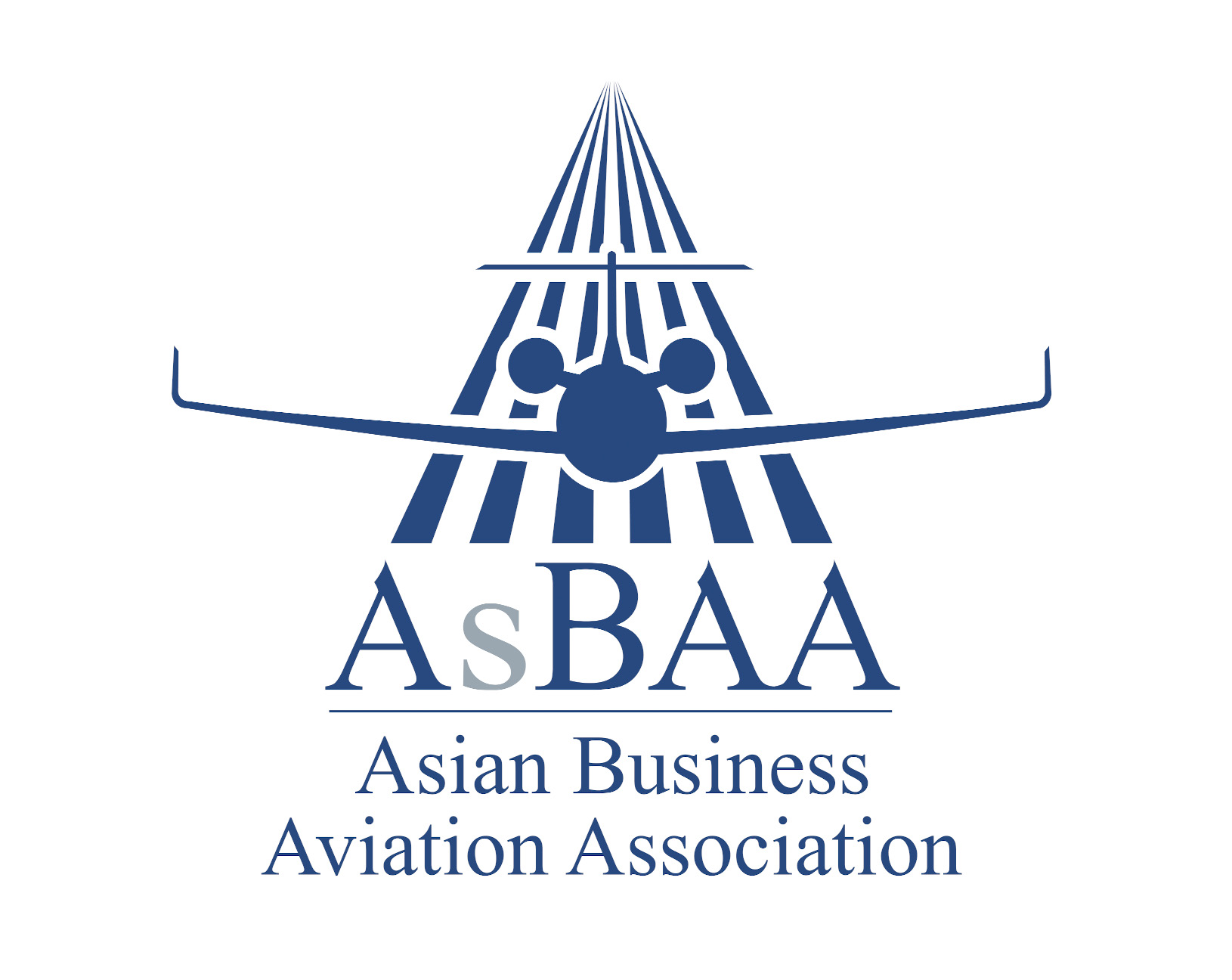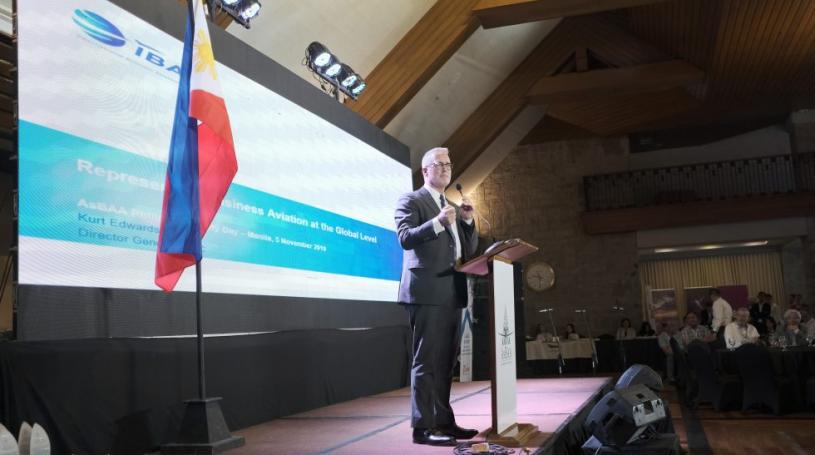Industry Update: IBAC’s Initiatives on ICAO Representation and Sustainable Aviation Fuel
In an interview with the International Business Aviation Council, AsBAA takes a closer look at IBAC’s appointment of new ICAO Liaison, SAF, and their support of industry events.
1. At the start of 2020, IBAC announced the appointment of Andy as ICAO Liaison. Please could you tell us more about the role and what we can expect from Andy in 2020/21?
Andy’s principal role is to represent IBAC at ICAO to help position the organization along with other leading industry representations such as IATA, ACI, CANSO and ICCAIA. The first step is to strengthen the permanent representation of IBAC at the deliberative bodies of ICAO to help increase the visibility of our aviation sector and its needs. Andy’s previous knowledge and contacts within the ICAO Secretariat and resident State Delegation at ICAO will allow him to establish and maintain trusted relationships that will facilitate the promotion of IBAC’s interest. Among other activities, Andy plans to engage with the Air Navigation Commission and participate in the newly launched industry engagement talks with the current president of the Air Navigation Commission, Captain Nabil Naoumi, introduced in 2020. Andy is also expected to review IBAC’s participation at the many ICAO Committee, Panel and Working Group meetings, and to identify strategic importance of such attendance. “It is more beneficial to attend a few selected meetings with clear strategic objectives and actively contribute in the work of these groups, than to attend all meetings just for the sake of attending,” Andy says. Andy’s joining directly links with the five-year strategic objectives of IBAC to become more relevant and efficient.
2. In 2020, IBAC will join AsBAA at an AsBAA-led sustainability focus group / panel. As a global stakeholder in sustainability initiatives for the business aviation sector, what is IBAC’s view on the current state of play?
The business aviation industry has always strived to reduce its environmental footprint, despite its small size relative to other aviation sectors and transport modes. We have been at the forefront of technology development leading to quieter, more efficient, and more aerodynamic aircraft. While continuing to address noise and particulate emissions is important, the issue of combatting aviation’s carbon emissions contributing to climate change is and will continue to be a central focus of IBAC’s work and efforts by our industry. Led by IBAC and the General Aviation Manufacturers Association (GAMA), the industry agreed in 2009 on the Business Aviation Commitment on Climate Change, seeking to improve fuel efficiency by two percent per year to 2020, to be achieve carbon-neutral growth from 2020, and to halve our carbon emissions by 2050 relative to 2005 levels.
These are ambitious targets. We foresee reaching them through a combination of approaches: improved operational efficiency, modernized air traffic control, new technologies (such as aircraft, engines, materials, and sustainable aviation fuels (SAF)), and, as necessary, market-based measures (such as the global Carbon Offsetting and Reductions Scheme for International Aviation established by ICAO). From our analysis to date, we know that each of these approaches will play a role in helping the industry to reach these goals. However, we believe that SAF will play an increasingly important role in the industry’s efforts to reduce its carbon emissions.
While we need to press on all these levers, work to promote the production and use of SAF will be critical. IBAC is proud to partner with EBAA, NBAA, GAMA, NATA, manufacturers and producers to inform the industry of the reality of SAF’s use now and encourage production and use in greater quantities. We would welcome the active participation of other IBAC member associations too! Our efforts aim to provide the community with information on SAF, the same as Jet-A but made from non-petroleum feedstocks. We want to encourage demand, sending signals to producers to make SAF.
We also are encouraging governments to put in place positive incentive policies to facilitate increased production and use. The ICAO Assembly agreed with IBAC’s call for such policies by member states in October 2019. We will continue to press governments around the world to take action on SAF. It is in their interest as well to help aircraft operators fly as sustainably as possible.
As recently announced to IBAC member associations, there is a new educational SAF Frequently Asked Questions brochure available for print or in a sustainable digital version to post and share within our aviation communities. Contact comms@ibac.org for a copy.
3. Since AsBAA launched its series of Safety Days in 2016, IBAC has played a major role in assisting the dissemination of information relating to SMS and safety best practices. Why is it important for IBAC to support these AsBAA events?
AsBAA is member association like any of our associations, partners in promoting safe business aviation operations and ground handling. AsBAA covers a region where business aviation is growing fast, albeit from a small base, and which has amazing growth potential for our sector.
Safety is the primary factor in allowing air transport to grow. One of IBAC’s key missions is to work with its member associations to promote best safety practices. We do so through the International Standards for Business Aircraft Operations and Handling, IS-BAO and IS-BAH. Both standards provide platforms for operators and handlers to build safe and efficient operations that are aligned with the relevant ICAO Standards and Recommended Practices. Participation in the programs demonstrates professionalism and excellence and has been shown to ease access and build confidence in passengers and clients. It is part of IBAC’s core mission to support AsBAA’s efforts to promote safety both with the community in the region and with regulatory authorities as well.
4. For the benefit of AsBAA’s Asia based members, when can we expect IBAC in Asia in 2020 (e.g. Safety Day in Malaysia, Philippines etc..)
IBAC always looks forward to supporting AsBAA’s efforts. First on the calendar this year will be the Safety Day in Kuala Lumpur on 18 March. Business Aviation Week last June in Singapore was a big success, and we hope to be a part of it this year as well. Of course, there are also key ICAO regional meetings that take place in Bangkok— such as the Air Navigation Planning and Implementation Regional group meeting in the fall.

